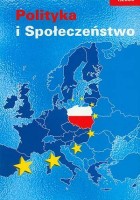Między wyobrażeniami a działaniami. Wybrane aspekty przedmiotowe badań politologicznych nad myślą polityczną
Between representations and actions. Selected aspects of studies in political thought as a subject matter of political science
Author(s): Waldemar ParuchSubject(s): Politics / Political Sciences, Political Sciences, Methodology and research technology
Published by: Wydawnictwo Uniwersytetu Rzeszowskiego
Keywords: political thought; political science
Summary/Abstract: The paper is an analysis of the category of political thought as an element of the research field of political science. The attention focuses on three issues: 1) the concept of political thought and the conceptual network related to it; 2) fundamental sources, methods and techniques adequate to research on political thought; 3) a historiography of political thought and the development of the ways to analyze political ideas. The concept of political thought enjoys a status of an autonomous notion in the language of political science. It is constituted by all kinds of reflection on political reality, irrespective of the degree of their development, internal coherence or systemati-zation as well as of the degree of their theoretical advancement and specification. It origins as a result of political thinking. It cannot be reduced to notions such as ideology, doctrine, conception, programme, ideas, a set of values and political princi-ples or be properly defined by the recurrence to these notions. Neither does it constitute an intermediate link in the categorical chain between ideology and doctrine. Both ideas and programmes, as well as ideologies and doctrines are constitutive elements of poli-tical thought. The present author assumed that political views do not have to relate directly to politics, institutions of power or a political regime as long as they exhibit political features. In the structure of political thought the following strata can be distinguished: ideological, conceptual and pragmatic which are hierarchically interdependent. To develop a political thought is the only way for any political subject to find an answer to many fundamental questions, to define goals which make public activity meaning-ful, to delimit political facts in the reality and to group them into relationships and to distinguish the political subject – in existential terms – from other participants of social life. In the political thought of the XX century one can see the evolution concerning types of ideas dominating the political thought – from the classical political phil-osophy to a reflection related to optimal political decision-making in given circum-stances. The breakthrough occurred around the half of the XX century when political subjects in their idea-making activities ceased to focus exclusively on precise defini-tions of visions of an ideal order based on a single, true and universal principle and engaged themselves in pragmatic controversies concerning the nature of particular solutions and the organization of the process of decision-making, that is concerning political engineering. There follows from the above points that exclusive focusing in research on analyses of political activities and their results without taking into consideration the views of politically oriented communities and decision-making centers representing them, would make it impossible for political science to fulfill its basic functions effectively (from the descriptive to the instrumental one)*. Therefore we attribute such an important role to the proper methodological organization of research on political thought which still suffers from three visible shortcomings affecting the cognitive process in numerous ways: 1. a weakly developed methodological reflection on the notion of political thought and the conceptual network related to it 2. little cognitive interest in the sources, methods and techniques proper to re-search on political thought 3. lacking scientific investigations in the historiography of political thought and the development of ways to analyze political ideas.
Journal: Polityka i Społeczeństwo
- Issue Year: 2004
- Issue No: 01
- Page Range: 9-38
- Page Count: 30
- Language: Polish

